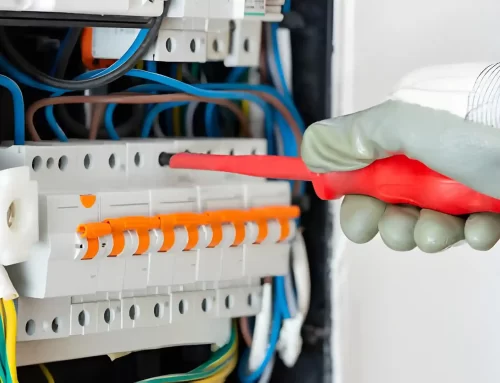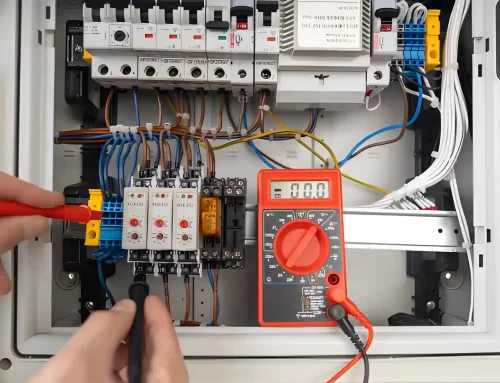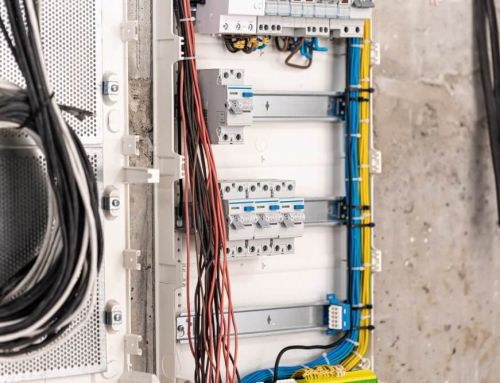
What is British Standard BS7671?
BS7671 :2018+A1:2020 is a non-statutory document that covers the technical aspects of CENELEC agreements. It was published by the British Standards Institute under the management of the Institution of Engineering and Technology (IET) and the British Electrotechnical Committee (BEC).
BS7671 is not legally required, but other legislation including the Electricity, Safety, Quality and Continuity Regulations 2002 and Part P of the Building Regulations 2010 refer to it. If BS 7671 is referenced in a contract, then common law will apply.
The BS7671 averages the time Inspectors will give an EICR for a maximum of 5 years, although this is only a recommended timeframe if the property installation being inspected is in good condition and up to code.
The Health and Safety Executive offers the following guidance in their publication HSR25:
“BS7671 is a code of practice which is widely recognized and accepted in the UK and compliance with it is likely to achieve compliance with relevant aspects of the Electricity at Work Regulations 1989”.
We must adhere to the Electricity at Work Regulations 1989, which falls under the remit of criminal law and is enforced by a number of agencies, including the Health and Safety Executive (HSE) and Local Authorities.
The HSE has stated that compliance with BS7671 is likely to achieve relevant aspects. However, this caution should not be taken lightly, and it is important to recognize a number of other factors:
- The BS7671 standard only applies to low-voltage and extra-low-voltage electrical installations. This doesn’t include the electricity associated with machinery, lift installations, or high voltage systems; However, the requirements of the Electricity at Work Regulations 1989 include all these aspects.
- Electrical installations that do not meet the requirements of BS7671, but comply with previous versions of BS7671 or the IEE Wiring Regulations might still comply with the Electricity at Work Regulations 1989.
- Although BS7671 focuses on the design, construction, inspection, and testing of electrical installations, it does not provide in-depth information about the skills required for individuals undertaking the work (other than recognizing the roles of skilled, instructed, and ordinary persons). Additionally, this standard does not give detail on maintenance activities or standard operating practices to ensure that safe system of work are followed.
- Many circumstances exist in which BS7671 does not apply and more specific standards should be adhered to instead.
Remember that BS7671 establishes minimum standards- always strive to exceed these requirements rather than meeting them only. compliance with BS7671 offers Good evidence of your intent to follow the law, which can be used as a defense in court. The IET Wiring Regulation’s requirements are well regarded and commonly accepted as good industry practice, In addition, they align with both European and international standards.
While the Requirements for Electrical Installations (BS7671) is a helpful document, it should be just one element of the bigger picture when it comes to electrical safety in your workplace. A safe system of work needs to encompass BS7671 alongside other supporting procedures, effective competency management, and company-wide rules on electrical safety.
Although there are some slight differences in the legal aspects of BS7671 and legislation between Scotland and Northern Ireland, the general guidance is still applicable.
To have a safe electrical system in your workplace, it is important to identify the areas where you are succeeding and the areas that need improvement. Our electrical health check can help you do this so that your company and employees remain safe while at work.
Conclusion
BS7671, also known as the IET Wiring Regulations, is a set of standards for electrical installations in the United Kingdom. It is the national standard for electrical installations and covers all types of buildings, from homes to large industrial facilities.
The BS7671 standard is maintained by the Institution of Engineering and Technology (IET) and is updated regularly to ensure it is in line with the latest technological advancements and safety requirements. The standard is designed to ensure the safety of electrical installations and to provide guidance for electrical engineers and other professionals involved in designing, installing, inspecting, and maintaining electrical systems.
The current edition of BS7671 was published in 2018 and is known as the 18th Edition. It contains important updates and changes to previous versions of the standard, including the introduction of new requirements for surge protection, the installation of Arc Fault Detection Devices (AFDDs), and the use of Residual Current Devices (RCDs) for certain types of electrical circuits.
One of the key features of BS7671 is that it provides guidance on the selection and use of electrical equipment, as well as on the design and installation of electrical systems. This includes guidance on the sizing of cables and conductors, the selection of protective devices, and the installation of electrical equipment such as switches, sockets, and lighting.
The standard also provides guidance on the inspection and testing of electrical installations to ensure they are safe and comply with the requirements of the standard. This includes guidance on the use of test instruments, the methods and procedures for conducting tests, and the interpretation of test results.
Overall, the BS7671 standard is an essential reference for anyone involved in the design, installation, inspection, or maintenance of electrical systems in the United Kingdom. It provides a comprehensive set of guidelines and best practices for ensuring the safety and reliability of electrical installations, and is an essential tool for promoting the highest standards of electrical safety and quality.
Our Pricing
| Our Electrical Safety Certificate Prices |
|---|
| Studio Apartment £67.99 |
| 1 – 3 Bedroom £81.99 |
| 4 Bedroom £89.99 |
| 5 Bedroom £98.99 |
Check Out Our Other Services
| EICR | Commercial EICR | Emergency Light Certificate |
|---|---|---|
| Electrical Diagnostic | PAT Testing | Fuse Box Installation |
About the Author: LandlordCertificate
Related Posts
Get Social
Recent Posts
- The Role of Fire Extinguisher Inspection in Fire Risk Management
- How to Stay Compliant with Emergency Lighting Test Certificate Rules
- EICR London Fault Codes Explained: What C1, C2, and C3 Really Mean for Landlords
- Choosing the Right Consumer Unit for Fuse Box Installation London in Properties
- Electrical Diagnostic London: How Professional Testing Keeps Your Property Safe and Compliant













